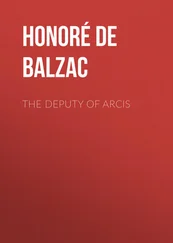Honoré Balzac - The Vicar of Tours
Здесь есть возможность читать онлайн «Honoré Balzac - The Vicar of Tours» — ознакомительный отрывок электронной книги совершенно бесплатно, а после прочтения отрывка купить полную версию. В некоторых случаях можно слушать аудио, скачать через торрент в формате fb2 и присутствует краткое содержание. Жанр: literature_19, foreign_antique, foreign_prose, на английском языке. Описание произведения, (предисловие) а так же отзывы посетителей доступны на портале библиотеки ЛибКат.
- Название:The Vicar of Tours
- Автор:
- Жанр:
- Год:неизвестен
- ISBN:нет данных
- Рейтинг книги:4 / 5. Голосов: 1
-
Избранное:Добавить в избранное
- Отзывы:
-
Ваша оценка:
- 80
- 1
- 2
- 3
- 4
- 5
The Vicar of Tours: краткое содержание, описание и аннотация
Предлагаем к чтению аннотацию, описание, краткое содержание или предисловие (зависит от того, что написал сам автор книги «The Vicar of Tours»). Если вы не нашли необходимую информацию о книге — напишите в комментариях, мы постараемся отыскать её.
The Vicar of Tours — читать онлайн ознакомительный отрывок
Ниже представлен текст книги, разбитый по страницам. Система сохранения места последней прочитанной страницы, позволяет с удобством читать онлайн бесплатно книгу «The Vicar of Tours», без необходимости каждый раз заново искать на чём Вы остановились. Поставьте закладку, и сможете в любой момент перейти на страницу, на которой закончили чтение.
Интервал:
Закладка:
The apartment, reached by a stone staircase, was on the side of the house that faced south. The Abbe Troubert occupied the ground-floor, and Mademoiselle Gamard the first floor of the main building, looking on the street. When Chapeloud took possession of his rooms they were bare of furniture, and the ceilings were blackened with smoke. The stone mantelpieces, which were very badly cut, had never been painted. At first, the only furniture the poor canon could put in was a bed, a table, a few chairs, and the books he possessed. The apartment was like a beautiful woman in rags. But two or three years later, an old lady having left the Abbe Chapeloud two thousand francs, he spent that sum on the purchase of an oak bookcase, the relic of a chateau pulled down by the Bande Noire, the carving of which deserved the admiration of all artists. The abbe made the purchase less because it was very cheap than because the dimensions of the bookcase exactly fitted the space it was to fill in his gallery. His savings enabled him to renovate the whole gallery, which up to this time had been neglected and shabby. The floor was carefully waxed, the ceiling whitened, the wood-work painted to resemble the grain and knots of oak. A long table in ebony and two cabinets by Boulle completed the decoration, and gave to this gallery a certain air that was full of character. In the course of two years the liberality of devout persons, and legacies, though small ones, from pious penitents, filled the shelves of the bookcase, till then half empty. Moreover, Chapeloud’s uncle, an old Oratorian, had left him his collection in folio of the Fathers of the Church, and several other important works that were precious to a priest.
Birotteau, more and more surprised by the successive improvements of the gallery, once so bare, came by degrees to a condition of involuntary envy. He wished he could possess that apartment, so thoroughly in keeping with the gravity of ecclestiastical life. The passion increased from day to day. Working, sometimes for days together, in this retreat, the vicar could appreciate the silence and the peace that reigned there. During the following year the Abbe Chapeloud turned a small room into an oratory, which his pious friends took pleasure in beautifying. Still later, another lady gave the canon a set of furniture for his bedroom, the covering of which she had embroidered under the eyes of the worthy man without his ever suspecting its destination. The bedroom then had the same effect upon the vicar that the gallery had long had; it dazzled him. Lastly, about three years before the Abbe Chapeloud’s death, he completed the comfort of his apartment by decorating the salon. Though the furniture was plainly covered in red Utrecht velvet, it fascinated Birotteau. From the day when the canon’s friend first laid eyes on the red damask curtains, the mahogany furniture, the Aubusson carpet which adorned the vast room, then lately painted, his envy of Chapeloud’s apartment became a monomania hidden within his breast. To live there, to sleep in that bed with the silk curtains where the canon slept, to have all Chapeloud’s comforts about him, would be, Birotteau felt, complete happiness; he saw nothing beyond it. All the envy, all the ambition which the things of this world give birth to in the hearts of other men concentrated themselves for Birotteau in the deep and secret longing he felt for an apartment like that which the Abbe Chapeloud had created for himself. When his friend fell ill he went to him out of true affection; but all the same, when he first heard of his illness, and when he sat by his bed to keep him company, there arose in the depths of his consciousness, in spite of himself, a crowd of thoughts the simple formula of which was always, “If Chapeloud dies I can have this apartment.” And yet – Birotteau having an excellent heart, contracted ideas, and a limited mind – he did not go so far as to think of means by which to make his friend bequeath to him the library and the furniture.
The Abbe Chapeloud, an amiable, indulgent egoist, fathomed his friend’s desires – not a difficult thing to do – and forgave them; which may seem less easy to a priest; but it must be remembered that the vicar, whose friendship was faithful, did not fail to take a daily walk with his friend along their usual path in the Mail de Tours, never once depriving him of an instant of the time devoted for over twenty years to that exercise. Birotteau, who regarded his secret wishes as crimes, would have been capable, out of contrition, of the utmost devotion to his friend. The latter paid his debt of gratitude for a friendship so ingenuously sincere by saying, a few days before his death, as the vicar sat by him reading the “Quotidienne” aloud: “This time you will certainly get the apartment. I feel it is all over with me now.”
Accordingly, it was found that the Abbe Chapeloud had left his library and all his furniture to his friend Birotteau. The possession of these things, so keenly desired, and the prospect of being taken to board by Mademoiselle Gamard, certainly did allay the grief which Birotteau felt at the death of his friend the canon. He might not have been willing to resuscitate him; but he mourned him. For several days he was like Gargantus, who, when his wife died in giving birth to Pantagruel, did not know whether to rejoice at the birth of a son or grieve at having buried his good Babette, and therefore cheated himself by rejoicing at the death of his wife, and deploring the advent of Pantagruel.
The Abbe Birotteau spent the first days of his mourning in verifying the books in his library, in making use of his furniture, in examining the whole of his inheritance, saying in a tone which, unfortunately, was not noted at the time, “Poor Chapeloud!” His joy and his grief so completely absorbed him that he felt no pain when he found that the office of canon, in which the late Chapeloud had hoped his friend Birotteau might succeed him, was given to another. Mademoiselle Gamard having cheerfully agreed to take the vicar to board, the latter was thenceforth a participator in all those felicities of material comfort of which the deceased canon had been wont to boast.
Incalculable they were! According to the Abbe Chapeloud none of the priests who inhabited the city of Tours, not even the archbishop, had ever been the object of such minute and delicate attentions as those bestowed by Mademoiselle Gamard on her two lodgers. The first words the canon said to his friend when they met for their walk on the Mail referred usually to the succulent dinner he had just eaten; and it was a very rare thing if during the walks of each week he did not say at least fourteen times, “That excellent spinster certainly has a vocation for serving ecclesiastics.”
“Just think,” the canon would say to Birotteau, “that for twelve consecutive years nothing has ever been amiss, – linen in perfect order, bands, albs, surplices; I find everything in its place, always in sufficient quantity, and smelling of orris-root. My furniture is rubbed and kept so bright that I don’t know when I have seen any dust – did you ever see a speck of it in my rooms? Then the firewood is so well selected. The least little things are excellent. In fact, Mademoiselle Gamard keeps an incessant watch over my wants. I can’t remember having rung twice for anything – no matter what – in ten years. That’s what I call living! I never have to look for a single thing, not even my slippers. Always a good fire, always a good dinner. Once the bellows annoyed me, the nozzle was choked up; but I only mentioned it once, and the next day Mademoiselle gave me a very pretty pair, also those nice tongs you see me mend the fire with.”
For all answer Birotteau would say, “Smelling of orris-root!” That “smelling of orris-root” always affected him. The canon’s remarks revealed ideal joys to the poor vicar, whose bands and albs were the plague of his life, for he was totally devoid of method and often forgot to order his dinner. Therefore, if he saw Mademoiselle Gamard at Saint-Gatien while saying mass or taking round the plate, he never failed to give her a kindly and benevolent look, – such a look as Saint Teresa might have cast to heaven.
Читать дальшеИнтервал:
Закладка:
Похожие книги на «The Vicar of Tours»
Представляем Вашему вниманию похожие книги на «The Vicar of Tours» списком для выбора. Мы отобрали схожую по названию и смыслу литературу в надежде предоставить читателям больше вариантов отыскать новые, интересные, ещё непрочитанные произведения.
Обсуждение, отзывы о книге «The Vicar of Tours» и просто собственные мнения читателей. Оставьте ваши комментарии, напишите, что Вы думаете о произведении, его смысле или главных героях. Укажите что конкретно понравилось, а что нет, и почему Вы так считаете.












